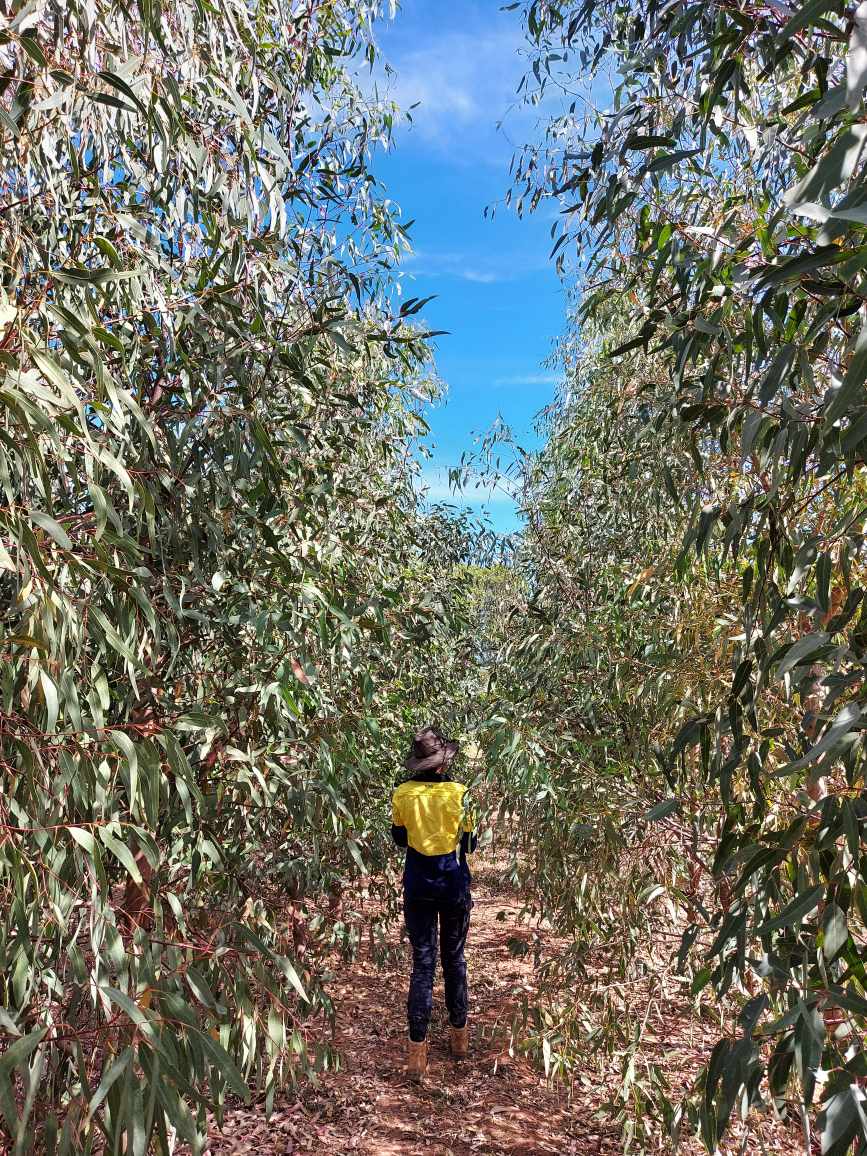
Around one thousand trees will be harvested at Yanco this week in the next phase of a critical biomass crops for bioenergy trial.
NSW DPI Senior Research Scientist, Dr Fabiano Ximenes, said the harvest operation would provide important insights into expected productivity of the trees and their potential benefits in terms of carbon sequestration and soil nutrient impacts.
"The work will give us valuable data on the likely productivity of those species for landholders in the region interested in growing them in the marginal, poorer portions of their land, he said.
Dr Ximenes said the trees consisted primarily of river red gum and Acacias and have been growing for a little over 2 years now – with quite a few already reaching 5 or 6 m in height in spite of the challenging weather conditions of recent years.
He said the planting of woody biomass crops can provide a significant opportunity for farmers to diversify their income by using marginal areas of their farm.
"Dedicated biomass crops would benefit less productive areas, diversifies the regional base and results in the creation of long-term job opportunities in regional NSW, across all parts of the supply chain, covering growing, harvesting, transporting and processing," Dr Ximenes said.
"Our farmers are experts at growing crops, so why don't we see if they can grow energy crops to support the diversification of our energy mix with renewables and also keep them employed doing what they do best?"
The trial is part of the $4 million Biomass for Bioenergy project, under the NSW Primary Industries Climate Change Research Strategy. Trials are also underway at Trangie, Orange, Glenn Innes, Tamworth, Muswellbrook, Scone and Grafton.
The project will investigate opportunities for increasing the amount of sustainable biomass use in NSW.
Bioenergy, or energy derived from biomass, is a sustainable alternative to fossil fuels because it can be produced from renewable fast-growing sources like gum trees.
NSW DPI Forest Science is partnering with CSIRO (Australian Tree Seed Centre) to investigate the productivity of prospective woody biomass crops grown under a variety of conditions.






